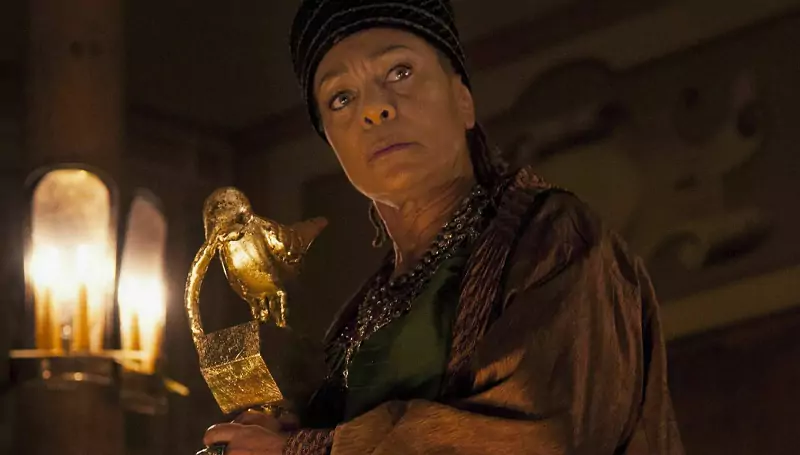“Richard II” at Sam Wanamaker Playhouse
Neil Dowden on the South Bank
7 March 2019
Ironically, in the all-female “Richard II” at the Sam Wanamaker Playhouse, the Duchess of York (one of just three female characters in the play) has been omitted, in a production that streamlines the text rather than guts it. Co-directed by Adjoa Andoh and Lynette Linton, with Andoh also playing the lead, it is not just the whole cast who comprise women of colour, but those contributing to the production backstage to. This is more than a politically correct statement: the show gives a voice and a presence to those so often disenfranchised in the past in a post-colonial reflection on what it means to be British.
It’s particularly pertinent now in the wake of the seventieth anniversary of the “Empire Windrush” first bringing West Indian immigrants to Britain, and as we approach the date when Britain is due to leave the European Union. With a divided nation, weak government, and fears about the future, the modern parallels with “Richard II” are made explicit. The text has been turned into a state-of-the-nation play about the identity of “this sceptered isle”.
Hanging about the sides of the stage in the traditional candlelit Sam Wanamaker Playhouse are images of female antecedents of the cast, a powerful reminder of how those who were once subjects of the British Empire now contribute to this island’s multicultural society. Rajha Shakiry’s design also features a bamboo back wall down which a huge St George’s Cross unfurls at the end of the show. The contemporary multi-ethnic costumes again emphasize Britain’s rich heritage, while Dominique Le Gendre’s hybrid of African and Asian style music is played live by a small band in the gallery including use of a harmonium-like Indian shruti box.
Andoh looks resplendent in an all-white trousers suit, wearing a golden headdress as crown, and carrying a fly-whisk reminiscent of certain African dictators. Her body language is imperious, manspreading as she overseas the dispute between Bolingbroke and Mowbray, abruptly stopping them as they begin to fight with sticks before punishing them differently – her king is arrogant, divisive, wayward, and impulsive. Courtiers may prostrate themselves, Eastern-style, but this shows reverence for the crown not the king himself. And when Richard is forced to abdicate, Andoh, now wearing an undershirt and leggings, reveals the complete emotional collapse of someone whose identity – so closely aligned to his royal role – has been shattered like his image in the broken mirror.
Richard’s nemesis Bolingbroke is played with disappointingly bland straight forwardness by Sarah Niles, who calmly steps in to clear up the mess left by his predecessor. Dona Croll makes an impressive Gaunt, world-weary and wheelchair-bound, giving gravitas to his patriotic concerns. Shobna Gulati is a northern-accented, sometimes amusingly worried Duke of York who reluctantly swaps sides when it becomes clear that the country needs a change in leadership direction.
Overall, the production is fairly low-key, lacking some visceral excitement in the confrontations on stage, while the story is lucidly told even if it could do with more forward momentum. The downfall of Richard is shown visually in his dissent from the castle towers of the gallery to languishing below the dungeon trapdoor, but even though some candles are extinguished his murder could have been staged for more tension. Nonetheless, this is a refreshingly new take on a much-staged play that clearly makes the case that Shakespeare is for everyone – and also implies that Britain should be equally inclusive.









